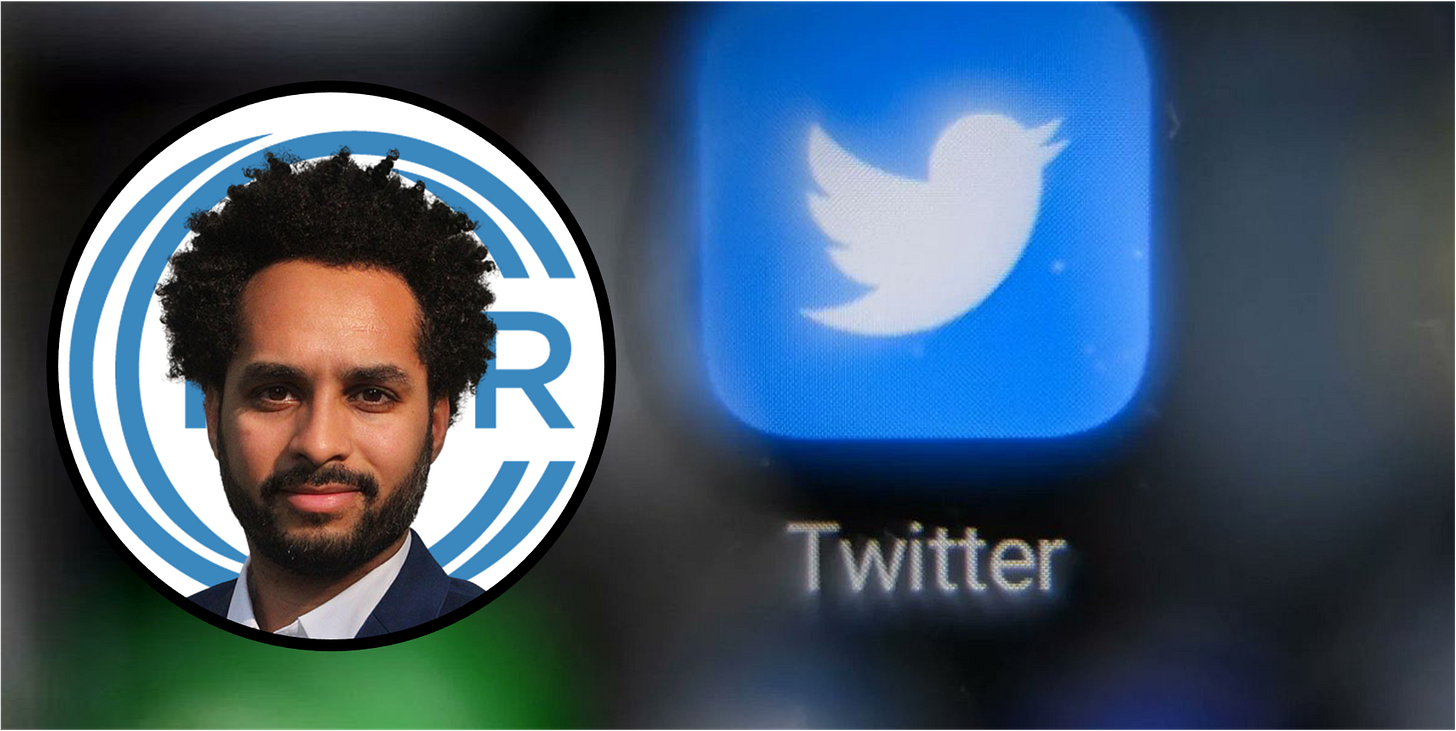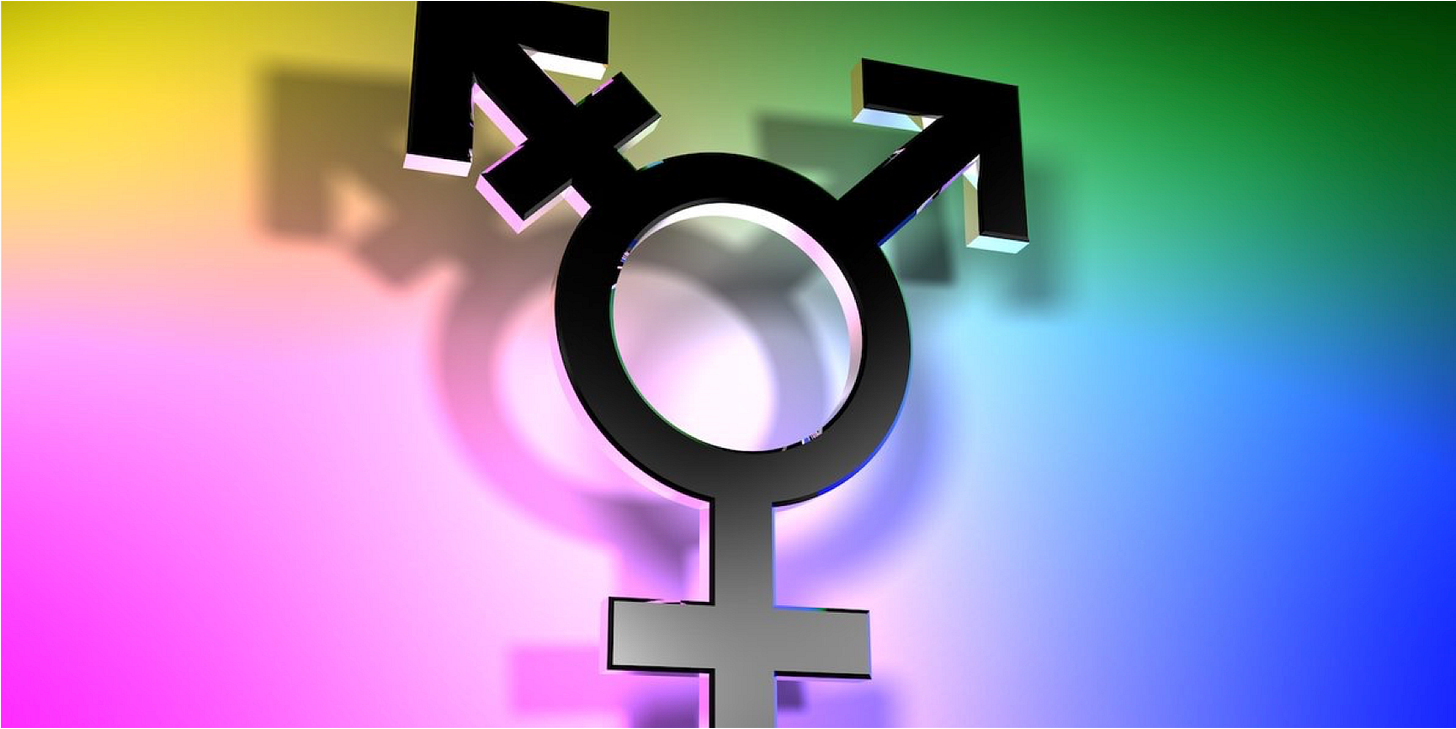For audio versions of our FAIR News and FAIR Weekly Roundup newsletters, subscribe and listen to our FAIR News Weekly podcast here.
For Newsweek, FAIR Advisor Angel Eduardo wrote about the purportedly corrosive effects of social media on the mental wellbeing of its users, and perhaps society more generally. While there is certainly truth to reports of social media’s harmful effects, Eduardo claims to have “figured out how to hack social media to reap the benefits while (mostly) avoiding the pitfalls.”
What are these “hacks”? First, according to Eduardo, we must take responsibility by recognizing that “social media isn't the problem; we are.” While social media may lure us by making it easy to choose to act in ways “that amplif[y] our worst traits,” we nevertheless "still have a choice about how [we] behave when using it.”
For Commentary, FAIR Advisor Wilfred Reilly discussed the debate over the term “racism,” and the widespread adoption of the idea that simple disparities in racial representation are de facto evidence of differential treatment or discrimination. The person most responsible for popularizing this idea is Ibram X. Kendi, who wrote a series of bestselling books making this argument.
Reilly says that this idea has gained so much traction because of its reliance on a false dichotomy that portrays group disparities as necessarily being the result of either systemic racism or actual racial inferiority/superiority. But, according to Reilly, this contention “is simply wrong as a matter of fact,” because group disparities can and do often result from differences in culture, population age structure, geography, and simple random chance.
For Persuasion, University of Virginia senior Emma Camp wrote about the backlash in response to her recent New York Times article discussing her perception that college campuses are not environments conducive to free speech.
According to Camp, the response to her article proved her main thesis correct.
The vicious rage in reaction to the article is telling. It shows, with biting efficacy, what happens when you don’t self-censor. If there was no real problem of illiberalism on college campuses, or our broader culture for that matter, then thousands of people wouldn’t have clamored to decry a college student as everything from a whiny child to a white nationalist. If there was no real problem, then my article wouldn’t have registered as that much of a threat.
Ultimately, Camp contends that while people certainly have a right to call people “terrible names” online, it makes “thoughtful and productive discourse” more difficult. “[I]f we want a culture that values free expression and open inquiry,” says Camp, “we ought to refrain from our most vindictive impulses.”
For The Washington Post, Corinna Cohn, a software developer who is also a trans woman, reflected on her decision to transition nearly 30 years ago in order to offer perspective and advice to young people currently struggling with their “gender.”
Cohn explains how different she is now compared to her 19-year old self, and questions whether she would have chosen to transition again, knowing what she knows now.
Ultimately, Cohn hopes that young people will slow down and do their best to find comfort in their bodies, saying that “if you explore the world by inhabiting your body as it is, perhaps you’ll find that you love it more than you thought possible.”
For Heterodox, Virginia attorney John Kline wrote about the sound of certain words and the feelings and emotions they arouse in people. According to this line of research, specific sound profiles can “implicitly influence language-users in their final emotional judgment about the meaning of words.”
Kline explains that “[t]here are phonetic features in these words that help explain why they have morphed into ‘scare terms’ or ‘devil words,’ which, as the Oregon Association of Scholars (OAS) describe in a recent report, are frequently deployed by professors and students simply to quash opposing views.”
In a real sense, words like “racist” and “hate” hold so much power because “they are phonetically designed to rattle us.” And, to the degree these words do manage to “wound up and excite” they also effectively “derail constructive engagement and chill open inquiry.”
For The Wall Street Journal, David Bernstein, founder of the Jewish Institute for Liberal Values, argued that “[t]he answer to ideological education isn’t to ban the ideology but to make room for alternative views.” While the solutions to many “culture war” issues are frequently depicted as dichotomous, Bernstein believes that there is often a reasonable third, or middle, path. He says:
I want my high-school-age children to learn about the history of this country, including the “1619” version. I want them to understand America’s legacy of race and racism, chattel slavery, Reconstruction, Jim Crow and red lining. I want them to know that there is still racism in this nation today and about the troubling disparities in various institutions, especially the criminal-justice system.
But Bernstein also wants his children to “be exposed to more than one opinion on why there are still racial disparities in America.” In order to receive a well-rounded education, children need to be exposed to “ideas that some on the right want banned and other ideas that some on the left actively demonize.”
In Quillette, four psychology scholars—Chris Ferguson, Cory Clark, Bo Winegard, and Allen Buchanan—evaluate the costs and benefits of the human tendency to form groups (i.e. tribalism), and how this tendency can produce great achievements as well as extreme danger.
According to Ferguson, “Tribalism is here to stay. But, harnessed cleverly, it can be directed toward prosocial goals rather than turned inward against ourselves.”
Clark believes that tribalism is a double-edged sword that “we may want to discourage in contexts where there are risks of intergroup conflict and encourage in contexts where it facilitates ingroup or intergroup cooperation.”
Winegard holds that tribalism is a “net good” because it “creates meaning and identity and helps to solve one of the fundamental challenges of cooperation.”
And Buchanan contends that the “features of tribalism make it the enemy of democracy” because it “is about sorting and signalling, not about rational engagement.”
For Persuasion, Deerfield Academy head John P. N. Austin wrote about the increasing demands for educators to offer opinions and statements on issues of great public concern. But instead of rushing to issue public statements, Austin says that sometimes “a studied, principled restraint is the best, and most appropriate, stance to take.”
Some students may be disappointed that their head of school has recused himself from commenting on issues of such profound importance. And I don’t like disappointing students. But in doing so, I hope I am empowering them—encouraging their independence of thought, creating a space of inquiry where they can discover their own views, and, most importantly, protecting their civic agency.
Austin believes school leaders should “assume a position of principled neutrality” on matters of public concern, because the “public stands we take as educational leaders can inadvertently chill expression and narrow the range of conversation on campus.”
Join the FAIR Community
Become a FAIR volunteer or to join a FAIR chapter.
Join a Welcome to FAIR Zoom information session to learn more about our mission, or watch a previously recorded session in the Members section of www.fairforall.org.
Take the Pro-Human Pledge and help promote a common culture based on fairness, understanding, and humanity.
Join the FAIR community to connect and share information with other members.
Share your reviews and incident reports on our FAIR Transparency website.












